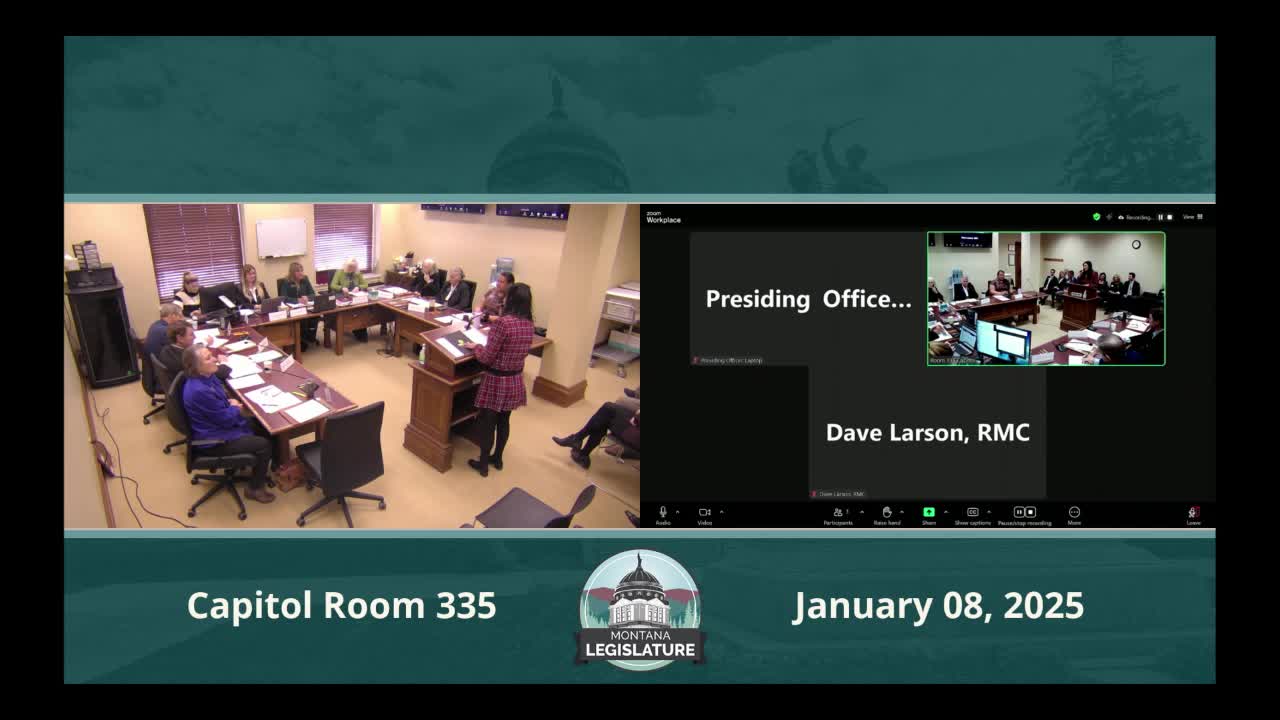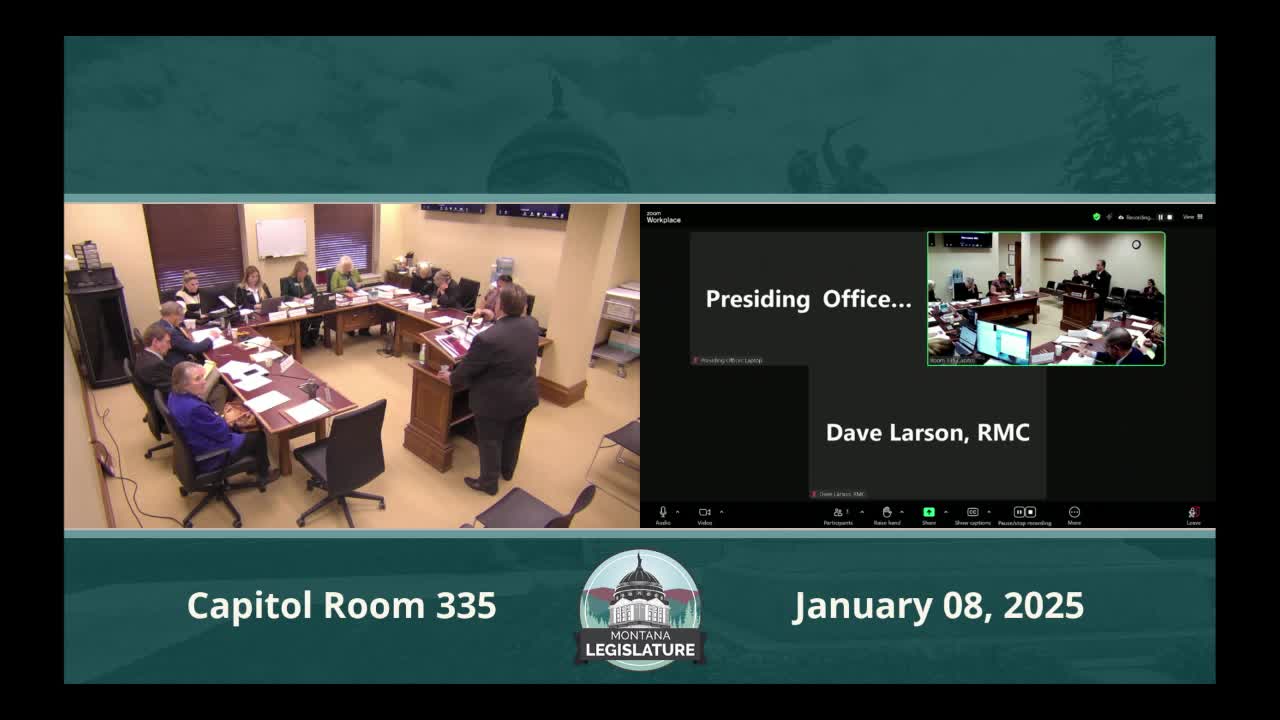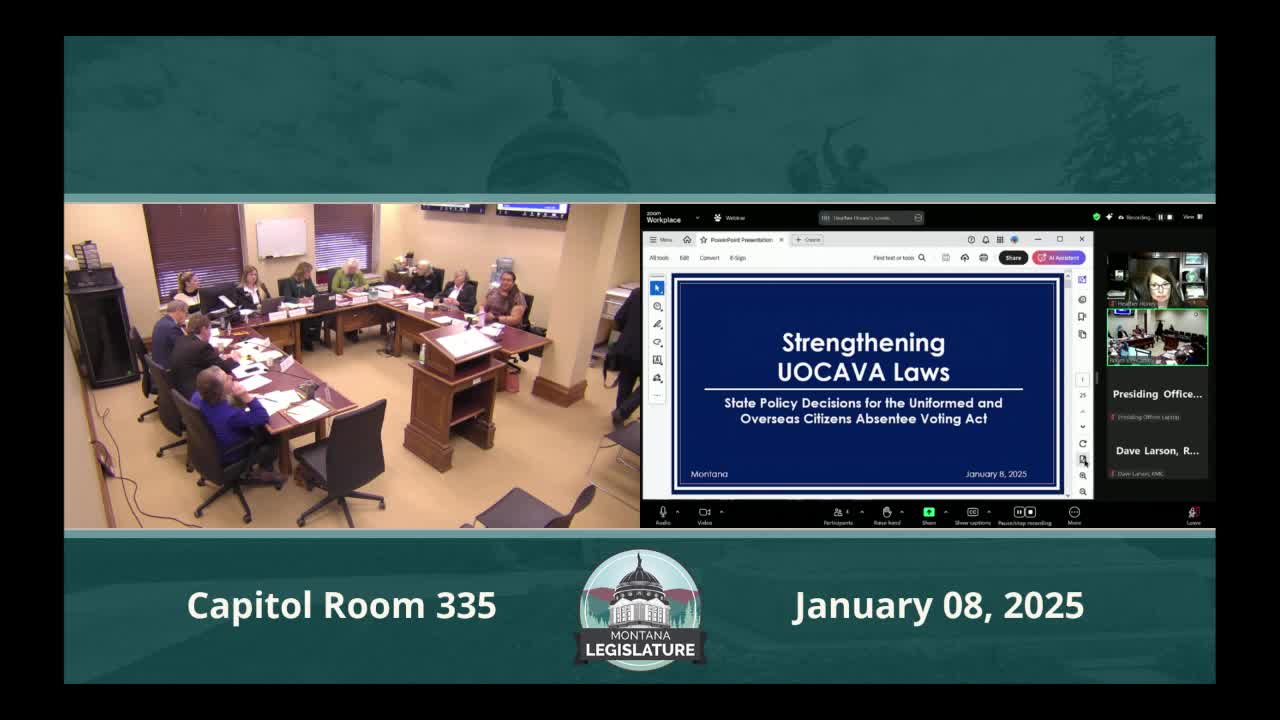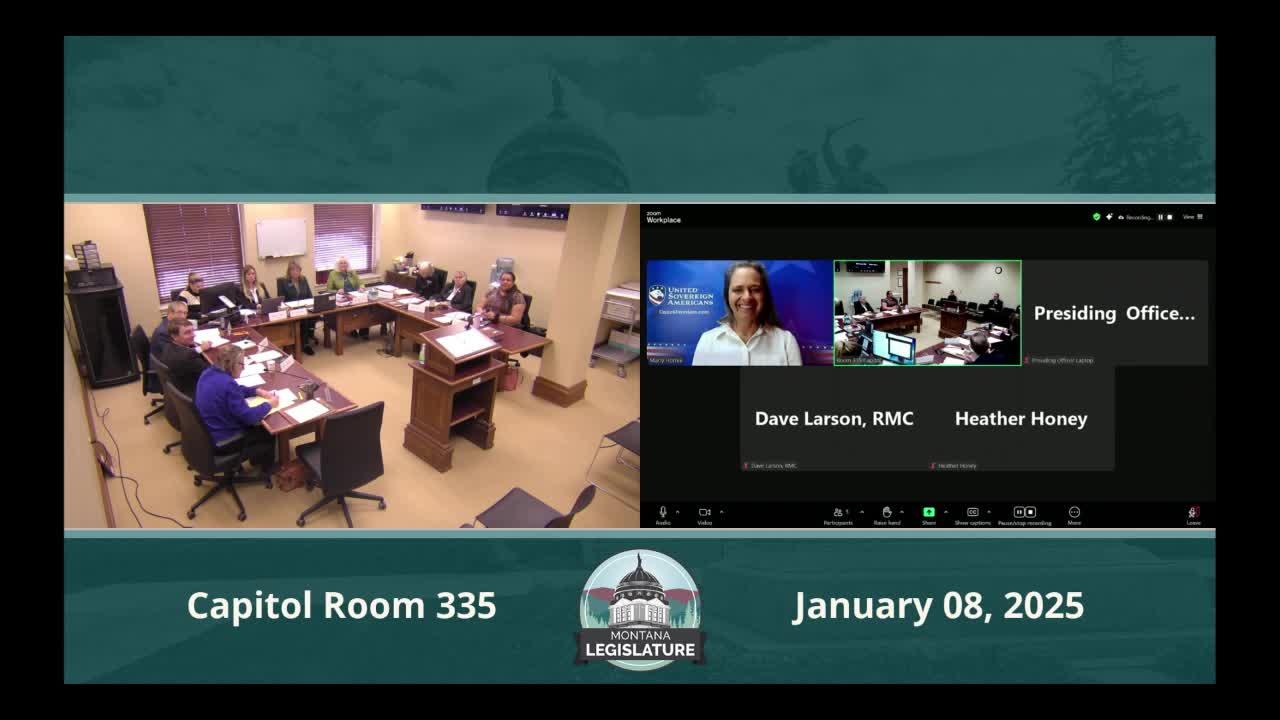Article not found
This article is no longer available. But don't worry—we've gathered other articles that discuss the same topic.

Montana Secretary of State Jacobson highlights business filings, election training and limits of investigatory authority

Commissioner of Political Practices reviews office functions, filings and compliance activity

Experts urge Montana to tighten UOCAVA rules: require citizenship proof, separate military/non‑military rules, limit electronic ballot return

